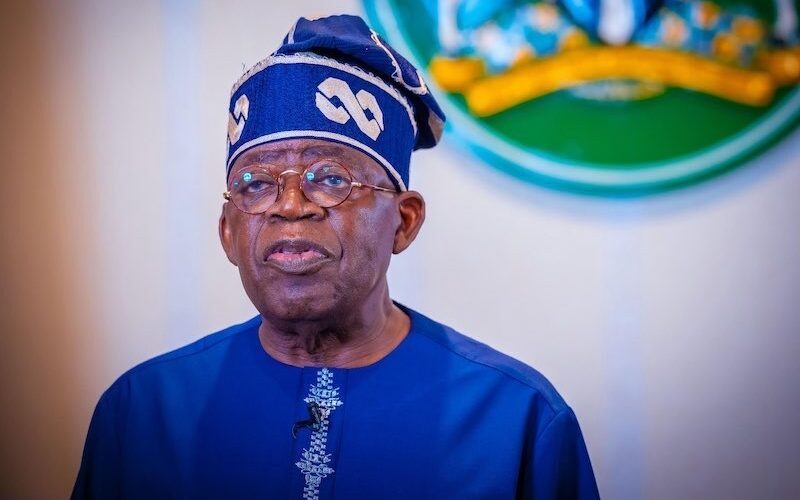Retired police officers weep over meagre pensions as experts warn that abandoning the Contributory Pension Scheme would plunge the nation back into chaos, writes
Festus Akanbi
W
hen a man who has given 35 years of his life to his nation, waking before dawn, chasing criminals, enduring sleepless nights, facing bullets, and sacrificing family comfort, retires with just N2 million to show for it, the question must be asked: What does loyalty mean in Nigeria?
That was the haunting reality last week when a retired Superintendent of Police openly rejected his retirement benefits. His “reward” for three and a half decades of service was N3 million in gratuity and arrears, a sum he called not just small, but an insult. His frustration captured the pain of thousands of pensioners across Nigeria who feel abandoned, discarded, and humiliated in their old age.
The federal government’s decision last week to appoint a new Chairman for the National Pension Commission (PenCom), Mr. Opeyemi Agbaje, may have prevented an immediate labour strike.
The Organised Labour had given an ultimatum for the government to reconstitute the PenCom’s board or face an industrial crisis, and the federal government complied on Monday. The labour had believed a reconstituted board would be able to address all challenges slowing down pension payments.
But beyond the political theatre, lies a deeper national wound: the Nigerian pension system, particularly under the Contributory Pension Scheme (CPS), is being called out as inadequate, unjust, and in urgent need of reform.
The Pension Promise That Became a Nightmare
PenCom, created to regulate and supervise pension fund administrators (PFAs), was meant to guarantee retirees a decent life after service. Under the CPS, workers contribute eight per cent of their salaries, while the government or employer adds ten per cent. In theory, these savings, managed by PFAs, are invested and returned as pensions and gratuities.
In reality, however, many pensioners find themselves trapped in poverty. Retired police officers have been particularly vocal, with some taking to social media in tears. Viral videos show men who once protected the country lamenting that their pensions, sometimes as little as N1 million after decades of work, cannot even cover rent, medical bills, or their children’s education.
It is not just about figures; it is about dignity. Inspector-General of Police, Kayode Egbetokun, admitted this reality in Abuja last week: “Most retired officers of the Nigerian Police Force live in conditions that are not only unacceptable but humiliating. Their monthly pension under the CPS is maximally low and roughly inadequate to meet even the most basic needs.”
When the head of the police himself uses the word humiliating, it signals a system that is deeply broken.
Cry to Return to the Old System
Faced with such hardship, many police officers are now demanding an exit from the CPS to return to the Defined Benefits Scheme (DBS), the system Nigeria abandoned two decades ago. Under DBS, retirees were paid directly by government budgets, supposedly guaranteeing fixed payments.
But analysts warn against romanticising the DBS. It was a system riddled with corruption, ghost pensioners, mismanagement, and chronic delays. Nigerians will not forget the television images of frail retirees collapsing in endless queues outside pension offices, waiting for payments that never came. Some died before collecting a single kobo.
The CPS, introduced through the Pension Reform Act 2014, was designed to fix those problems by ensuring transparency, funding sustainability, and legal protection. It may not be perfect, but it is still better than the chaos of the past. As policy analyst Ahmadu Lagbaja noted: “The clamour to abandon the CPS in favour of DBS is misplaced. The complaints about low pension payouts are reflections of inadequate salaries during service. A man who earns little cannot expect a fat pension.”
This truth is bitter. A retirement package is only as strong as the salary base it is built on. For police officers and many public servants whose pay has historically been low, the pension outcome will naturally be modest, regardless of the system in place.
Human Cost
But explaining this to hungry pensioners is another matter. Numbers and policies mean little to a man who cannot afford drugs for hypertension. They mean nothing to a widow struggling to feed children after her husband served the nation faithfully but left her with pennies.
The human cost of Nigeria’s pension failures is everywhere. It shows in the gaunt faces of old men who line up at banks, clutching pension slips like lifelines. It shows in the bitterness of officers still in service, who look at their retired colleagues and wonder if their futures are worth the sacrifice. Some analysts warn that this despair could fuel insecurity, as officers tempted by hopeless retirements may misuse their skills for survival.
Demands for Reform
Retirees are not just lamenting; they are proposing solutions. The National Association of Retired Police Officers of Nigeria (NARPON) has called for measures which include an increased government contribution, from the current 10% to 20%, in addition to officers’ 8%, bringing total contributions to 28%.
They are also calling for supplementary pension schemes like those at the Central Bank of Nigeria (CBN), the Nigerian National Petroleum Corporation Limited (NNPCL), and the Nigerian Deposit Insurance Corporation (NDIC), where agencies fund additional benefits for their retirees.
They also call for special budgetary provisions to reflect the unique hazards of policing.
These proposals make sense. Policing is not like any other job; it comes with daily risks to life. If bankers and oil workers can retire with dignity, surely those who chase armed robbers and terrorists deserve the same.
Why Salaries Matter
Still, experts insist that reforms must go beyond pension formulas. The core issue is poor remuneration during active service. Pension consultant Ibrahim Shehu Musa argues that without a solid salary base, pension outcomes will remain inadequate under any scheme. He recommends regular salary reviews for the police and other critical services; timely remittance of contributions by the government; strengthening of NPF Pensions Limited to operate more efficiently; and sustained engagement with PenCom and lawmakers for policy reforms.
Not all is gloom. On June 18, 2025, PenCom announced a central upward review of pensions under the CPS, alongside a recommendation for 100% gratuity payment at retirement for public servants. If implemented, this would ease immediate financial burdens and restore some faith in the system.
Equally significant is the pending approval of N758 billion in outstanding pension shortfalls for security agencies by the National Assembly. If released, this could dramatically improve retirement benefits for many officers.
Analysts urge the police hierarchy to lobby harder for this disbursement rather than dismantle the CPS.
History must guide Nigeria’s choices. The DBS era was marked by untold suffering. The CPS, though flawed, offers a structure that can be fixed. As Lagbaja reminded, “The path is not backwards into a broken past, but forward into a reformed, responsive, and fair pension future.”
Ultimately, the pension debate is not just about figures; it is about fairness. A nation that spends billions on political offices but leaves its pensioners in penury is a nation that has lost its moral compass. Retirees are not beggars; they are men and women who have already paid their dues. To watch them suffer is to betray the very values of service and sacrifice.
Nigeria stands at a crossroads. It can either patch the cracks in the CPS, increase contributions, improve salaries, and release owed funds, or it can allow its pensioners to sink deeper into despair. The choice will define not just the future of the police or civil service, but the character of the nation itself.
The new PenCom Chairman has inherited more than a regulatory role; he has inherited a moral responsibility. The pension crisis is not just an economic issue; it is a humanitarian one. Until Nigerian pensioners can retire with dignity, the nation’s conscience will remain burdened.
For every old man clutching N2 million after 35 years of service, for every widow counting pennies after her husband’s death in the line of duty, for every officer still in uniform wondering if loyalty is worth it, pension reform is not optional. It is urgent.
The cry of pensioners is the cry of justice. And justice, delayed or denied, weakens the very foundation of the state
The post When Service Ends in Suffering appeared first on THISDAYLIVE.


